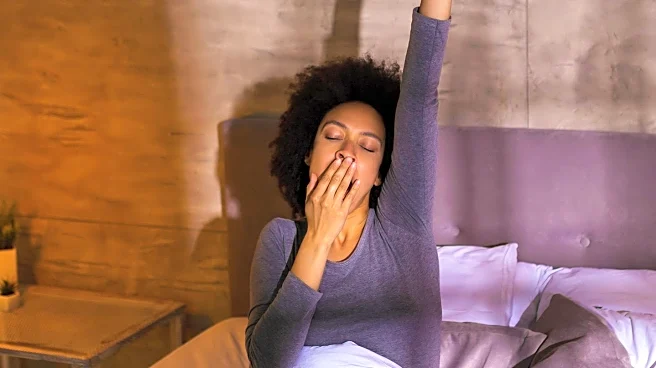What is the story about?
What's Happening?
Recent research underscores the critical role of circadian rhythms in regulating sleep and overall health. Scientists emphasize that maintaining a consistent sleep schedule and exposure to natural light during the day can significantly enhance sleep quality. The study highlights that modern lifestyles, characterized by indoor living and irregular sleep patterns, disrupt these natural rhythms, leading to various health issues. Researchers advocate for increased exposure to daylight and reduced artificial light at night to synchronize the body's internal clock, which is essential for optimal physiological functioning.
Why It's Important?
The findings have significant implications for public health, as disrupted circadian rhythms are linked to a range of health problems, including cognitive decline, mood disorders, and chronic diseases like diabetes and heart disease. By promoting better sleep hygiene and light exposure practices, individuals can potentially mitigate these risks. The research suggests that simple lifestyle adjustments, such as spending more time outdoors and minimizing screen time before bed, could lead to substantial improvements in sleep quality and overall health.
What's Next?
As awareness of the importance of circadian rhythms grows, there may be increased advocacy for workplace and urban design changes that prioritize natural light exposure. Additionally, further research could explore personalized light exposure recommendations based on individual differences in circadian sensitivity. Public health campaigns might also focus on educating the public about the benefits of maintaining a regular sleep schedule and the potential health risks associated with circadian disruption.
Beyond the Headlines
The study also touches on the broader societal implications of circadian rhythm disruption, such as its impact on productivity and mental health. As more people become aware of the importance of aligning their daily routines with natural light cycles, there could be a cultural shift towards valuing sleep and natural light exposure as essential components of a healthy lifestyle.















